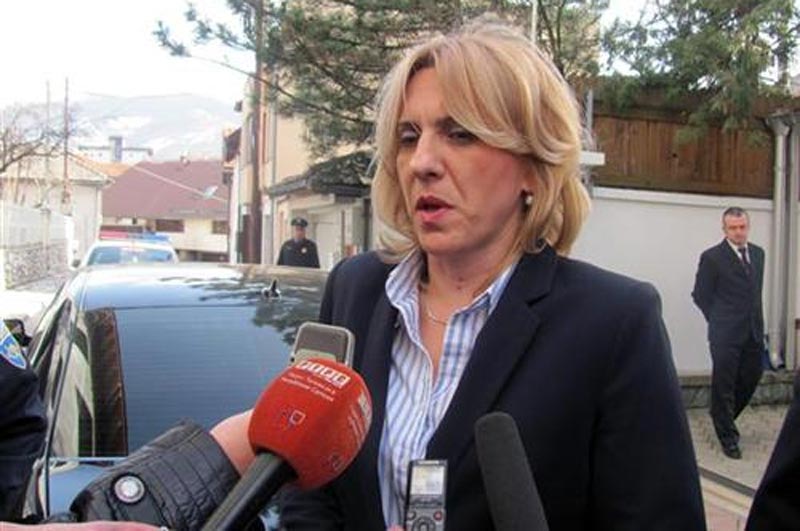The European Union did not lower the criteria for the accession of Bosnia and Herzegovina, but made room for a more creative interpretation of the fulfilment of those criteria, Bosnia and Herzegovina Foreign Minister Zlatko Lagumdzija said on Tuesday, commenting on the conclusions of the EU Foreign Affairs Council which discussed Bosnia and Herzegovina in Luxembourg on Monday.
Speaking at a panel discussion at the Faculty of Political Sciences in Sarajevo, Lagumdzija said that the very length of the conclusions showed the seriousness with which the Council addressed the situation in Bosnia and Herzegovina. “These conclusions give hope that we can take certain steps with a positive attitude towards the future,” he said.
The Council expressed its support for Bosnia and Herzegovina as a single and sovereign state with prospects of EU membership, condemning ideas of secessionism and division.
Lagumdzija said that this was the first time that a difference had been made among politicians in Bosnia and Herzegovina. “We certainly are not all the same,” he noted.
The Council expressed serious concern over the lack of the political will in Bosnia and Herzegovina to carry out the necessary reforms, calling for urgent measures to improve the socio-economic situation in the country. The Bosnian authorities were urged to launch reforms in order to improve the functioning of the country and ensure the implementation of the European Court of Human Rights ruling in the European Court of Human Rights case.
Lagumdzija said that the Council conclusions removed the danger of “redrawing of maps” in Bosnia and Herzegovina. He recalled attempts of six months ago to resolve the issue of implementation of the Sejdic-Finci ruling by establishing new electoral units, which would open the way to further territorial divisions in the country. Lagumdzija said that the latest conclusions paved the way to a new and more ambitious approach to constitutional reform after a general election in October and would make it possible to step up work on strengthening the rule of law and combating corruption.
“I am not announcing general election, but obviously something else will be needed in the future,” Lagumdzija said, stressing that the Council conclusions oblige all stakeholders in Bosnia and Herzegovina to change the climate in the country. “I believe that next year will be a year of a new agreement on Bosnia and Herzegovina, with the participation of all key stakeholders, on how to move from the Dayton stage to the Brussels stage,” he added.
Lagumdzija said he expected assistance from the United States in that regard, given that next year will be 20 years since the signing of the Dayton peace agreement that ended the 1992-1995 Bosnian war.(TSN)



